- Home
- Patrick Robinson
Intercept Page 3
Intercept Read online
Page 3
Indeed it was a Pashtun village, way up there in the Hindu Kush, which in 2005 decided to save the badly wounded Navy SEAL Marcus Luttrell, in the face of stringent opposition from the Taliban and al-Qaeda. The villagers remained defiant to the end, saved Marcus, and flatly refused to surrender him.
The problem with the jihadists in the ensuing years was they were becoming tougher and more aggressive all the time, with an unmistakably threatening swagger to their approaches to the villages. They stopped short of announcing they would burn the place down if families were not prepared to hand over their young males to undergo an indoctrination process.
But there was an unseen line, across which both sets of armed fighters were unprepared to venture: the fact was they needed these tribal villages for food, water, and shelter during their long months in the mountains, avoiding U.S. troops. They could afford to threaten, but not to declare war, since one such incident might easily cause dozens of Pashtun communities to shun them permanently.
The Pashtuns were by nature a peace-loving group, but, when roused, were apt to declare blood-pacts to stand shoulder-to-shoulder and fight their enemy until no one was left alive. This held no appeal whatsoever to the tired and dispirited Taliban and al-Qaeda fighters who sought only allies, not enemies, on the high slopes of northeastern Afghanistan.
Across the border, in the northern provinces of Pakistan, the Pashtuns were known as the Pathans, the world’s largest tribal society. The ancient beliefs and folklore of this group was not far removed from the rigorous codes of behavior of the Taliban—in many ways just as harsh and similar in doctrine.
Yousaf Mohammed was a Pathan, with deep Pashtun roots stretching back through centuries in Afghanistan. His family had crossed the border into Pakistan in 1973, and twenty-five years later, the young Yousaf had re-crossed, back into Afghanistan, recruited into bin Laden’s mountain strongholds at seventeen. Both he and Ibrahim were devout, lifelong Muslims and trusted above all else the words of both the six-foot-five modern-day Sheikh and the ancient Prophet Mohammed. The bonds of Islam have always held together both of these adjoining countries.
Each day in Guantanamo, the prisoners were lined up and permitted to pray before dawn. At this ritual, conducted outside under usually cloudless skies, the two men were kept deliberately apart.
However at the daily gathering for exercise, they were permitted to work out close to each other on the rowing machines, and at soccer games were allowed on the same teams. By running across to the far touchlines, away from the camp guards, they were able to exchange what meagre information they possessed.
And right here, in the hot and still Cuban air, they each encountered a new ally—the regular goalkeeper, Ben al-Turabi, a twenty-five-year-old Gaza-born Palestinian bomber, disciple of bin Laden, colleague of Sheikh al-Zawahiri. He was an al-Qaeda hit-man and a long-time scourge of the Mossad security forces.
Like Yousaf and Ibrahim, Ben had been picked up by U.S. troops on a swoop into one of bin Laden’s villages. Like them, he had been in possession of no identifying documents. Like them, he had refused to speak. Like them he had faced only the briefest military tribunal, and not one member of the U.S. military could prove who he was, one way or another.
So far as the Mossad was concerned, Ben had constructed the bomb that detonated in Netanya, on Israel’s coast, north of Tel Aviv, on March 27, 2002—the one that had nearly blown the Park Hotel in half, killed twenty-seven and injured one hundred and forty, many of them women and children, right in the middle of Passover.
The Mossad, for once, with Middle Eastern peace talks pending, was not anxious just to hunt al-Turabi down and murder him within Israel’s borders. And when their INTEL located him in the Hindu Kush, Afghanistan, they tipped off the CIA in Langley and suggested they take over. It took SEAL Team 5 four days to run Ben to ground, and about two hours to manacle him and ship him direct to Guantanamo.
Ben was very nearly as tall as bin Laden himself, and just as malevolent in his loathing of the West. He was not a bad goalkeeper either. He was quick and sure-footed, with the eye of a desert hawk and enormous, powerful hands. His methods of self-survival in the prison were the complete opposite of those employed by Ibrahim and Yousaf. Ben presented a cheerful, sunny-side-up appearance and seemed to be happy to cooperate with both the guards and the interrogators, laughing and shaking his head at the apparent absurd suggestion that he was, himself, a Hamas commander in the cauldron of the West Bank.
Ben’s good nature and friendliness toward his captors was, after more than five years, a feature of Camp Five. He had a huge smile, a deep spontaneous laugh, and an almost comic expression of incredulousness whenever it was suggested that he, Ben, had actually blown up the Park Hotel. All these years he had sworn to God he was a back-packer from the University of Tel Aviv, wandering the mountains, and that these weirdos with Kalashnikovs slung over their shoulders had taken him in for a gourmet feast of flatbread, dust, sand, and sour goat’s milk.
“Next thing I knew,” he would assert, “these huge American guys with beards had sprung from nowhere, shot the guards at the entrance to the caves, and frightened the life out of everyone, including me.”
Thus ran the party-line of Ben al-Turabi. Although he was never able to explain quite why, at the moment of his capture, he was carrying a fully loaded machine gun, with ammunition belts slung diagonally across his chest, and four bomb-detonators in the pockets of his baggy Afghan pants. Neither was he clear with his explanation of the gunpowder under his fingernails that the American forensic guys instantly detected. Ben was also somewhat vague as to why the University of Tel Aviv had never heard of him.
The Mossad, Israel’s renowned Secret Service, was absolutely certain he was a grade-one terrorist. They had photographed him at the scene in Netanya, and while it was a picture of appalling quality, it was better than three others they had snapped from various other terrorist crime scenes.
According to the hard-eyed sages of King Saul Boulevard, Ben had started off as a young hitman for Yasser Arafat’s Palestinian terror group, Hamas, but had been called up to The Base, bin Laden’s world jihadist headquarters in the Afghan mountains. He had left the rubble-strewn streets of Gaza on the understanding that he might return for “specialist missions.” The Mossad considered he was on one of these when the Park Hotel blew.
The problem for the Mossad was two-fold. One, they did not know Ben’s name, or any way to identify him. Two, they had no experience of operating in the northeastern mountains of Afghanistan. Whereas they were more than happy to work in tandem with America’s CIA or FBI antiterrorist squads, they had no fighting force comparable to the U.S. Navy SEALs when it came to mountain combat on murderous escarpments that, down the centuries, had proved beyond the capabilities of both the British and the Russians. No one had to try very hard in order to die up there in the Hindu Kush.
Locating Ben had been largely good luck. A Mossad Intelligence cell had picked someone up on a highly suspicious mobile phone in Netanya in the hours before the hotel explosion. They had swooped on the Mediterranean resort too late. But their surveillance teams had a fix on that cell phone, and they located it again, eight days later, in the middle of a packed football stadium in Amman, on the far side of the Jordan River.
Ben went quiet after that. But Mossad surveillance nailed that telephone again four months later, working in conjunction with the British military: this time in central Afghanistan near the capital city of Kabul. By now Israel’s entire Intelligence network believed the man who had killed and maimed all of those people in Netanya was headed up the slopes to rendezvous with bin Laden’s high command.
These were innocent days, long before the jihadists wised up to the fact that their cell phones were the most lethal aid to their enemies. Today they avoid the incriminating message. They rarely, if ever, use phones, because the tiny electronic signal can pinpoint the whereabouts of the caller.
In the days when bin Laden was plainly still alive, the
National Security Agency in Fort Meade, Maryland, was able to listen in to the al-Qaeda leader on his cell phone, in his cave, talking to his aged mother in Saudi Arabia. They would play the tapes to selected visitors, as a regular party-piece.
Meantime up in the high peaks, Ben al-Turabi was using his phone like a lovesick teenager at an English boarding school, chatting away, checking the football scores, leaving disgraceful messages on his friends’ answering machines, and generally behaving in a manner unbecoming for a Palestinian mass-murderer.
The American interceptors picked him up in about five minutes and immediately sent in the heavies, a top SEAL team that crossed the mountains in pouring rain, on foot, slipping and sliding through the gullies, until they fell upon the al-Qaeda redoubt with ruthless efficiency. Somehow or another Ben had managed to smash and then get rid of his cell phone before the SEALs slammed into his cave. The phone was never found and thus another small piece of evidence that might have betrayed his exact identity was lost forever.
The rest fell into place automatically. The laughing goalkeeper wound up, within a week, in Guantanamo, a true no-home, no-name, no-future, pacing-his-cell political prisoner, uncharged but suspected of high-treason and murder against the State of Israel and its people.
Despite his “Who? Me?” attitude and joshing manner with his American guards he was listed as a number-one hard-man, unbroken by years of intense interrogation, constantly in shackles, kept in solitary confinement, and regarded as a security risk of the first order. When he played football, armed guards were posted right next to the goalposts. One step out of line, they would have gunned Ben down, no questions asked.
But Ben never stepped out of line. He was a model prisoner despite his “known terrorist” pedigree and obvious connections to al-Qaeda. Several guards over the years had whiled away the boring hours by chatting to the tall Palestinian, whose command of English was outstanding. And although he had zero access to any form of Intelligence beyond the coils of razor-wire that bound up the camp, he gleaned more information than anyone else ever did from the friendlier U.S. guards.
This did not involve specific Intelligence, but it did involve snippets such as U.S. lawyers being involved in protests against the system, advising outfits like Amnesty International. When a newspaper ran a story that a Washington law firm had been retained by a Saudi oil company with suspected connections to terrorist organizations, one of the guards jokingly told Ben he might yet get out of Guantanamo since Left-wing forces in the United States were on the march on behalf of people like himself.
This struck a chord with Ben, because he knew the oil corporation, and he knew bin Laden was related to its president. This latest news suggested to him that The Sheikh was on his case, and he could hardly wait to tell his new buddies Yousaf and Ibrahim.
There was only one other prisoner with whom he might wish to share this information, and that was Abu Hassan Akbar, another former Hamas killer who had trained in the Hindu Kush specifically to become second-in-command to Ben al-Turabi the next time Osama sent in his men to wreak havoc on either the West or Israel.
Abu Hassan was an honest-to-goodness psychopath from downtown Gaza where he had been born twenty-five years previously. Shot and wounded in the backstreets of north Baghdad, he had been hauled into custody by the throat, manacled, and grilled over the deaths of fifteen U.S. Army personnel, who had been killed the previous week by a mighty booby-trap bomb that detonated on the roadside as the troops raced past. He also carried no identity, but Israeli agents, called in to help, ascertained he was Palestinian, almost certainly a Hamas field operative, and one of the principal experts on explosives still at large in that benighted part of the world.
Abu Hassan had been wanted by both the Mossad and the U.S. military for several months, but kept vanishing over the Iraqi border into Iran. When, finally, the SEALs picked him up, it was still impossible to pin an accurate identity on him, but the Mossad swore he was the mastermind behind the Be’er Shiva bombing of a barmitzvah in 2004, which had left six dead and thirty-five maimed, most of them kids.
Like Ben al-Turabi, Abu Hassan was nailed by poor-quality photographic evidence and the occasional cell-phone location. The Israelis knew him on sight and were happy to take the sonofabitch off the hands of the Americans and out into the desert to shoot him.
What saved Abu’s life, perversely, was his cold-blooded murder of the U.S. Army personnel, because that changed the game. That made him a criminal in the eyes of Uncle Sam, which is not great, but better than being grabbed by the Mossad and the instant death that almost certainly signified.
The Americans spent several weeks trying to pin multiple murder charges on Abu Hassan, but without an accurate name and some form of identity and background it proved impossible. Bin Laden and Yasser Arafat sent in a team of lawyers prepared to lie, beg, or threaten legal mayhem if the Americans harmed one tight, black, curly hair of Abu’s head. One U.S. general swore by all that was holy that he would personally wring the neck of one particularly persistent New York-based lawyer, who had stopped about a centimeter short of calling him a liar.
U.S. military INTEL had a thick file on Abu Hassan, with enough circumstantial evidence to hang him from a tall palm tree a hundred times. By one estimate, he was implicated in more than a dozen bombings in Israel alone. He was suspected of launching rockets from Gaza City over the new barrier wall and of blowing up two supermarkets. In the U.S. garrison in Bagram, in the foothills of the Hindu Kush, he was named as the most likely culprit for no fewer than twelve attacks on U.S. personnel involving roadside bombs.
When the SEALs finally grabbed “Abu the Bombmaker” in Baghdad, he was extraordinarily lucky they did not just shoot him right there—but then, so was Saddam Hussein. Abu was, in a sense, in exalted, if notorious, company. Of the four unbroken terrorists grinding out their daily existence in Guantanamo, he was the most likely looking killer, with his unshaven lopsided face, permanent scowl, and jagged scar running down the left side of his jawbone.
An angular character of medium height, with an athletic way of walking, Abu, since a young age had enjoyed killing. Out there in the hot, sandy ghettos of Gaza City he found ample outlets for his talent with knife or gun, while serving a kind of satanic apprenticeship with the hit squads operating on behalf of Hamas, and, of course, Yasser Arafat.
His sorties across the border into Israel were constantly, by his standards, successful. He would kill any Israeli without mercy, man, woman, or child—striking viciously in the darkness with his curved blade or even with dynamite. He went by the name of “Cobra”—and he said it in English, to ensure the Israelis were in no doubt precisely who and what he was.
He had value as a killer, but much more so as a constructor of bombs and an aimer of primitive rockets. Abu had been a nomad among jihadists, answering only to the call of al-Qaeda, moving silently across borders into Iran, into Afghanistan, back into Gaza, and up into the enfolding escarpments of the Hindu Kush. The modern profession of bombmaking is a bit like sailing a yacht. The skilled man can do it anywhere.
Ben al-Turabi and Abu Hassan Akbar knew each other. They had sat side-by-side in those quasi-religious councils conducted by bin Laden in the border country between Afghanistan and Pakistan. Both men were en route to the Tora-Bora district when the Americans slammed into the mountains with a barrage of twenty-first-century bombing.
No one at Guantanamo knew for certain the two men had been al-Qaeda comrades in arms, though there were several interrogators who suspected they probably knew each other. There was just something about the way they talked quietly on the football field, as if they did not require quite so many words as normal people. Whenever they met, there was a substantial amount of head-nodding, and a paucity of lip movement. Quite often the interrogators had asked if the two men were acquainted, but neither of them gave an inch. Ben laughed, and Abu Hassan snarled. Neither of them uttered a word.
Proof positive that the two men did know each other would
, of course, have been damning evidence against them, because they had been arrested hundreds of miles apart—Ben in the high Afghan caves, Abu Hassan in North Baghdad. Both were believed to be active jihadists by the best Intelligence Services in the world. If they could be proven friends, that would probably be sufficient to guarantee them lifetime accommodation in Guantanamo. Which was, more or less, why Ben and Abu spoke only rarely and, right under the eyes of the guards, created a code of speaking and passing information through Ibraham and Yousaf, which had stood the test of time. The four men were blood brothers in the black art of silence and deceit.
And, somehow, they understood there were forces out there beyond the razor wire that were striving for their freedom, and that in the end they would return to the front line of their holy struggle against the Infidel. Each piece of news came to them slowly and sketchily, by osmosis more than anything else. But it sustained them, and it gave them the oxygen of hope, and it kept alive the flickering flames of defiance and anger.
Throughout their years of captivity, the only form of justice available was that of the military tribunal—a kind of commission for the trial and punishment of any individual detained at Guantanamo. In November 2001, President George W. Bush authorized these “courts” to proceed, and all four men, Ibrahim, Yousaf, Ben, and Abu Hassan had made brief appearances before the military “judges,” but none of them had spoken, which made the entire thing a pretty good waste of everyone’s time.
Military tribunals can be quite useful for trying members of enemy forces who were operating outside the scope of conventional criminal and civil proceedings. Despite the presence of military officers, serving as both judge and jury, they are distinct from courts martial, which is a fairer and less intense procedure.

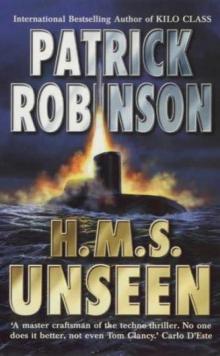 H.M.S. Unseen am-3
H.M.S. Unseen am-3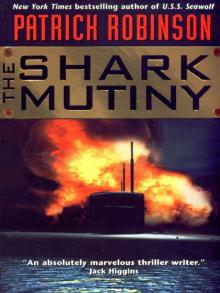 The Shark Mutiny (2001)
The Shark Mutiny (2001) Hunter Killer am-8
Hunter Killer am-8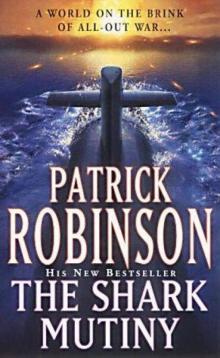 The Shark Mutiny am-5
The Shark Mutiny am-5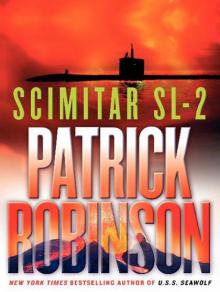 Scimitar SL-2
Scimitar SL-2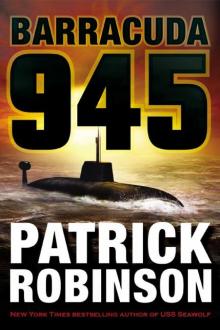 Barracuda 945 am-6
Barracuda 945 am-6 Hunter Killer
Hunter Killer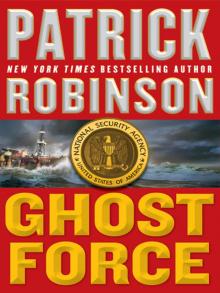 Ghost Force
Ghost Force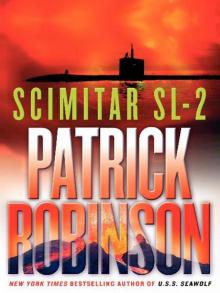 Scimitar SL-2 (2004)
Scimitar SL-2 (2004) Kilo Class am-2
Kilo Class am-2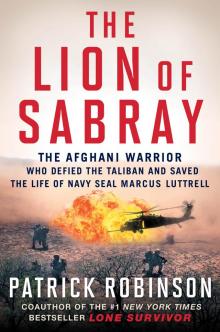 The Lion of Sabray
The Lion of Sabray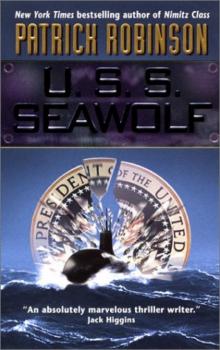 U.S.S. Seawolf am-4
U.S.S. Seawolf am-4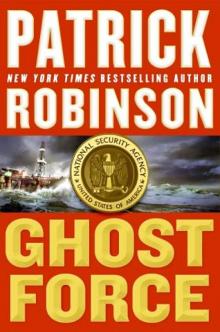 Ghost Force am-9
Ghost Force am-9 To the Death am-10
To the Death am-10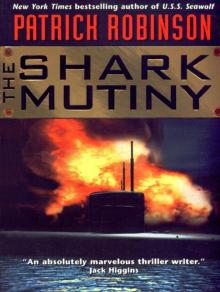 The Shark Mutiny
The Shark Mutiny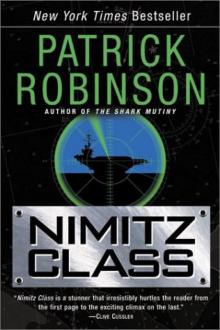 Nimitz Class am-1
Nimitz Class am-1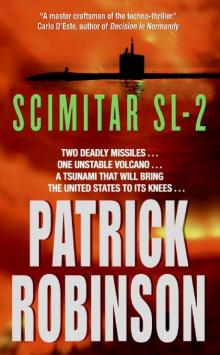 Scimitar SL-2 am-7
Scimitar SL-2 am-7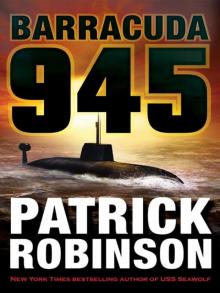 Barracuda 945
Barracuda 945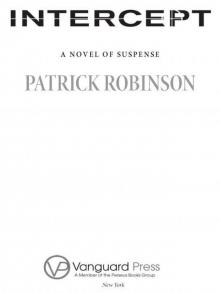 Intercept
Intercept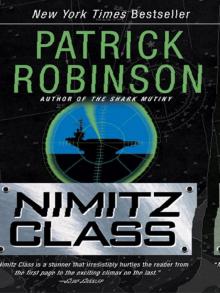 Nimitz Class (1997)
Nimitz Class (1997) Kilo Class
Kilo Class Kilo Class (1998)
Kilo Class (1998) Diamondhead
Diamondhead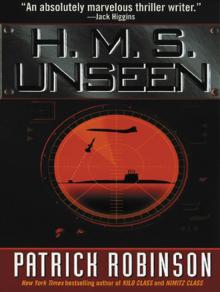 H.M.S. Unseen
H.M.S. Unseen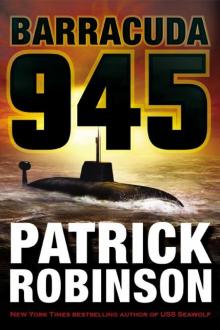 Barracuda 945 (2003)
Barracuda 945 (2003)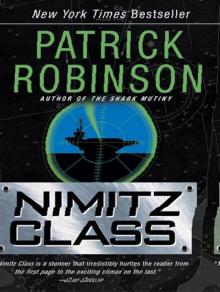 Nimitz Class
Nimitz Class The Delta Solution
The Delta Solution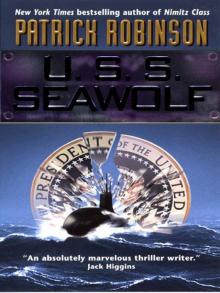 U.S.S. Seawolf
U.S.S. Seawolf